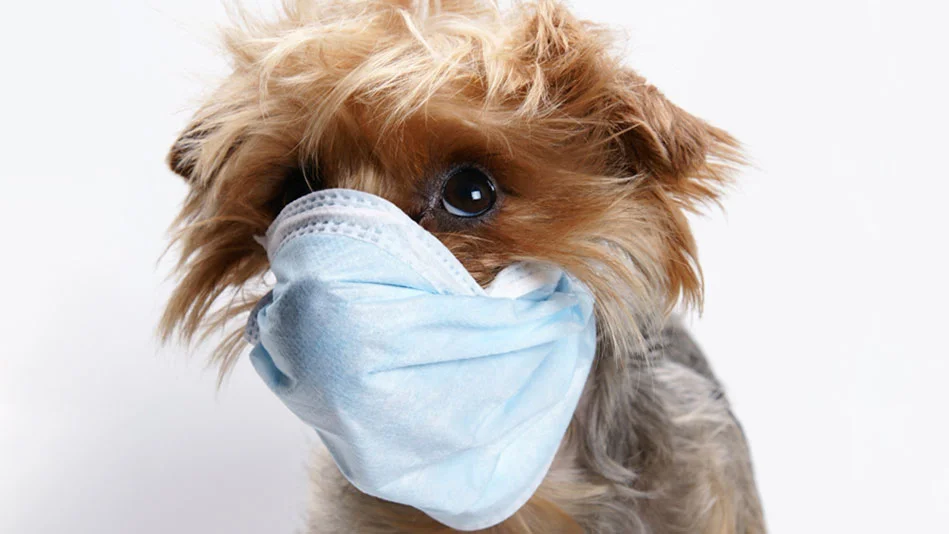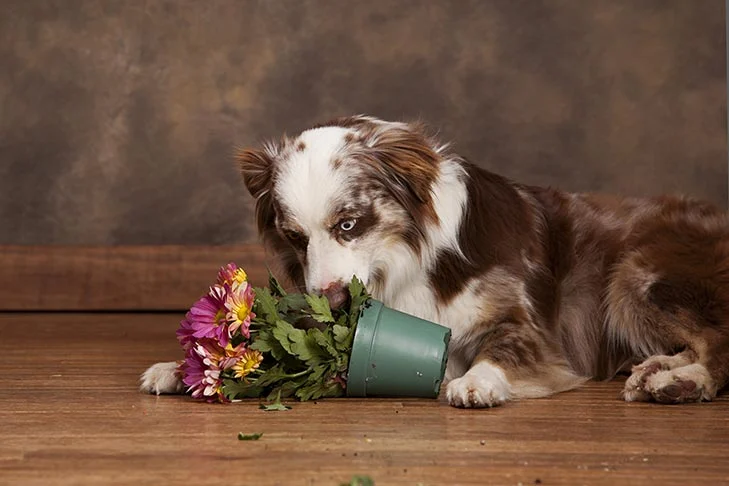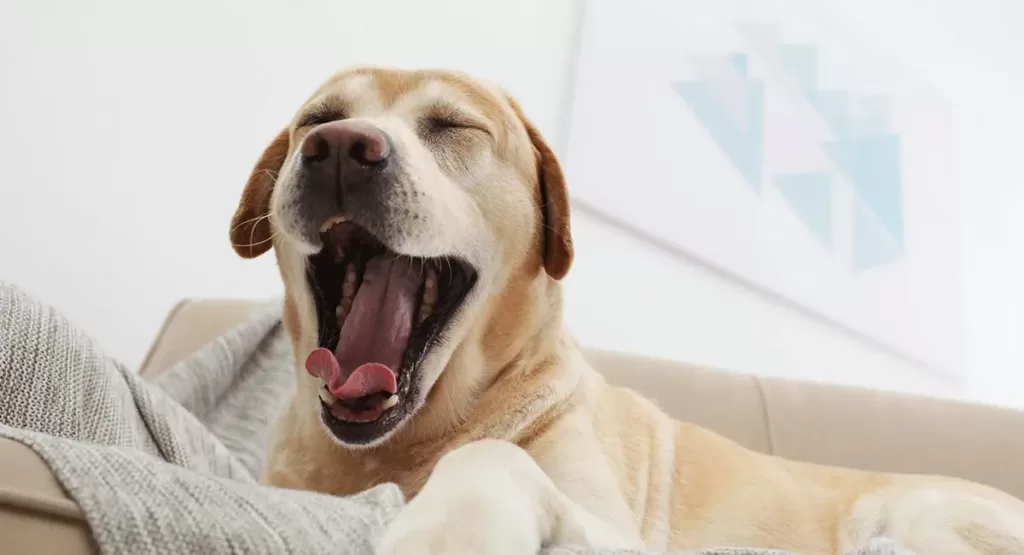Why Does My Puppy Have Bad Breath? Puppies often have bad breath because of teething. The gums are expanding and the puppy is eating a lot of hard food. As the gums recede, the bacteria that causes bad breath spreads to other parts of the mouth. Some breeds are more prone to bad breath than others. If your pup has been having trouble with his breath, there are simple steps you can take to help improve it.
This is also a common problem that many dogs face. There are several reasons why your pet may have bad breath, including
- Dental disease
- Eating habits
- Mouth infections
If you notice that your dog has bad breath, there are some steps that you can take to help him feel more comfortable and improve his oral health.
Why Does My Puppy Have Bad Breath? Puppy bad breath is caused by a number of different factors.

The scientific justification is likewise somewhat lacking in scientific rigor.
Even though we don’t have a full understanding of what causes puppy breath, the majority of veterinary dentists and other specialists agree that a variety of things are to blame, including the following:
- Puppy breath is a condition that is most noticeable when the puppy is nursing or shortly after it has been weaned and is sometimes referred to as milk breath. This argument, however, falls short due to the fact that puppy breath can be detected even several weeks after a dog has been weaned
- The oral bacteria that are typically seen in older dogs are absent from the mouths of puppies, making them clean and healthy
- Puppies’ digestive systems are home to a distinct set of bacteria and flora in comparison to those of adult dogs
What Could Be Causing My New Puppy to Smell So Bad?
Even if you don’t like the scent of regular puppy breath, you can’t say that it is putrid or sickening in any way.
If you have noticed that your canine companion’s breath has an unpleasant odour, here are six potential causes for the stench:
1. Teething
The process of teething is by far the most common source of unpleasant, nasty, or otherwise unusual puppy breath.
Some puppies exhibit this trait more obviously than others do.
The quality of the breath changes as the weaning process for the puppy gets further and farther away, and as it enters the full teething stage.
The following is a typical schedule for the eruption of a puppy’s teeth:
- Around week 2 or 3, the eruption of the primary (deciduous) teeth begins.
- By week 5 or 6, all 28 of the baby teeth have emerged.
- During weeks 12 through 16, the first baby teeth start to come out.
- By the age of six months, adult teeth have emerged.
There is a risk of infection and inflammation throughout the process of tooth development in a puppy.
Sometimes a tooth has trouble breaking through the gum tissue, a puppy tooth might shatter, or the puppy might be gnawing on toys or treats so much that it creates very sore gums. These are all potential reasons of painful gums.
People get the impression that puppies that are teething have a type of metallic odor due to the bleeding that occurs around the gums.
When your puppy is still very young and teething, it is best to steer clear of bones and toys that are especially tough. These extremely delicate teeth are prone to breaking, which can impede both the natural process of losing baby teeth and the eruption of adult teeth.
KONG toys and other similar rubbery toys, which can be loaded with food or treats, are frequently recommended by veterinary dentists. Washcloths that are cool to the touch are preferable than ice cubes because chewing on ice can cause tooth fractures.
2. Damage to or difficulty using the mouth
Puppies chew on anything and everything, it is fairly normal for them to get hurt in their jaws while they are growing and teething.
Even while the oral cavity heals fast from minor injuries because it is so quick to recover, it is possible for a foreign body, such as a piece of stick or toy, to become trapped in the mouth cavity, which will result in a putrid smell.
If you notice that your dog’s breath has an unpleasant odor, you should consult your veterinarian about this.
During these months, the majority of puppies are receiving a series of vaccinations; therefore, unless you believe there is a critical and acute problem, the majority of puppy teeth questions can be brought up during your wellness appointments or while your puppy is getting vaccinated. A visit to the veterinarian should be scheduled as soon as possible if your puppy has a particularly foul odour or displays any signs of oral pain or trouble eating.
3. Unhealthy Eating Habits of the Puppy

A puppy’s non-discerning appetite is referred to as “dietary indiscretion” by vets, which is a more polite way of saying “dietary indiscretion.”
Puppies will consume just about anything they can get their mouths on, including waste products, which is another way of stating that they will eat anything they can get their teeth into.
After eating certain foods, such as dog excrement, cat dung, garbage, rotting leaves, and so on, the breath may have an unpleasant odor.
Think about how you feel after eating a meal that’s heavy on the garlic: that everything bagel you had for breakfast could make your friends and family uncomfortable for the rest of the day.
By carefully smelling the area around your puppy’s mouth, you should be able to determine what it consumed.
Also Read: Can My Dog Eat Butter?
Poop left behind by cats is almost always easy to identify.
If you think that your puppy’s breath smells awful because it recently ate something revolting, the good news is that the breath should improve in a few hours or a day’s time at the very latest.
Make an effort to keep track of what your new puppy consumes.
Bad breath is an annoyance, but nutritional indiscretion can lead to much more serious issues, such as severe vomiting and diarrhea or a blockage in the intestines.
4. Indigestion
Is foul breath a side effect of eating this food? Almost, but certainly not.
The majority of veterinarians are of the opinion that diet does not contribute to foul breath.
Having said that, your canine companion may have an adverse reaction to a specific brand of puppy food, which may be resulting in some degree of digestive upset.
It’s possible that you’re mistaking the smell of “poor breath” with the smell that comes from the digestive tract if a certain food gives you an upset stomach or if it’s difficult to digest.
A foul smell coming from the gastrointestinal tract may be accompanied by other symptoms such as excessive belching, passing gas, or even vomiting and diarrhoea.
Discuss your options for food with your veterinarian.
In order for your puppy to recover from dyspepsia, a diet of bland foods for one to two weeks may be required.
After that, you can make moderate adjustments to the diet over the course of a week or so and check to see if the symptoms improve.
5. Periodontal Disease
True dental disease in young puppies is extremely uncommon. In most cases, major dental disorders or gum disease do not manifest themselves in children younger than three years old.
It is essential; however, that you begin the practice of brushing your puppy’s teeth at an early age so that they become accustomed to it.
Start brushing your child’s teeth at the age of six months or earlier if it’s at all possible.
When your dog is young, you should give his teeth a good brushing at least three times per week.
Brushing one’s teeth twice daily, beginning at the age of three, is the most effective strategy to avoid periodontal disease and tooth decay.
6. Disorders of Metabolism
A metabolic condition, such as kidney failure, might occasionally cause a puppy to have an unpleasant or unusual stench coming from their breath.
It is possible that the puppy is exhibiting other signs and symptoms of disease.
In unusual conditions like these, your veterinarian will likely suggest beginning the diagnostic process with blood tests.
7. Tumors or abscesses in the mouth
A puppy’s bad smell from the mouth could be caused by tumors or abscesses in the mouth. A puppy’s mouth is full of squishy tissue, which makes it an easy target for tumors and abscesses. If you notice your puppy has a bad smell from the mouth, make an appointment with your veterinarian as soon as possible. Treatment may include surgery to remove the tumor or abscess.
Why Does My Puppy Have Bad Breath? Home remedies: Some natural ways to help your pups breathe.
Bad breath is a common problem for both dogs and people. There are many causes, but the most common ones are dental problems, eating bad foods, smoking, and poor oral hygiene. Some natural ways to help get rid of your puppy’s bad breath are as follows:
- Clean their teeth regularly. This may include brushing their teeth twice a day with a good toothpaste and water or using a special toothbrush designed for puppies. If they have any dental issues, be sure to consult your veterinarian
- Feed them healthy food. Make sure their diet includes fresh fruits and vegetables as well as meat and bones that have been cooked properly. Avoid feeding them junk food or treats that contain sugar or starch
Final Points
In conclusion, bad breath is a common issue for dogs of all ages. There are many possible causes, including dental problems, viral respiratory infections, and food allergies. If you think your dog may have bad breath, consult your veterinarian for a diagnosis and treatment plan.

